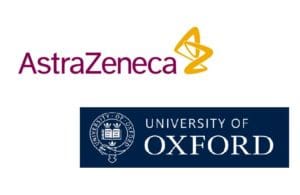 On the face of it, AstraZeneca (LON:AZN) seems to have a competitive COVID-19 vaccine. Its vaccine, which it has jointly developed with the University of Oxford, promises to be up to 90% effective — far higher than the FDA’s requirement of 50%. It is also inexpensive, costing $2.50 per dose.
On the face of it, AstraZeneca (LON:AZN) seems to have a competitive COVID-19 vaccine. Its vaccine, which it has jointly developed with the University of Oxford, promises to be up to 90% effective — far higher than the FDA’s requirement of 50%. It is also inexpensive, costing $2.50 per dose.
But the company finds itself at a disadvantage compared with its competitors, Pfizer (NYSE:PFE) and Moderna (NYSE:MRNA), whose vaccines appear to be more effective and backed by more rigorous clinical data.
After announcing preliminary results from its Phase 3 trial, AstraZeneca admitted it made a vaccine dosing mistake, inadvertently giving some participants half of the initial dose of the two-dose vaccine.
The blunder, however, was serendipitous. In the pool of patients who received a half dose followed by a full dose a month later, the vaccine appeared to be 90% effective. One dosing regimen led to a trial efficacy rate of 62%. The trial’s average efficacy was 70% — far lower than the roughly 95% efficacy levels Moderna and Pfizer have achieved in their studies.
“I think that they have really damaged confidence in their whole development program,” Geoffrey Porges, an SVB Leerink analyst, told the New York Times.
Meanwhile, both Pfizer and Moderna seem poised to receive emergency use authorizations from the FDA in the coming weeks to distribute their vaccine.
AstraZeneca was also the victim of a North Korean cyberattack, according to Reuters. Hackers posing as recruiters attempted to obtain sensitive information from the company but were apparently not successful.
Also complicating matters for AstraZeneca is the recent report of a COVID-19 vaccine trial volunteer claiming to have experienced acute neurological and psychological adverse events after receiving the vaccine. The man is asking for 50 million rupees — approximately $676,000 — in remuneration from the company.
In the positive column, however, the Serum Institute of India, one of the top vaccine producers globally, has announced that it views AstraZeneca’s vaccine as a “very good” option. The declaration is an important affirmation after some healthcare authorities have questioned the firm’s clinical trial data.
The UK government recently announced it had referred the vaccine candidate to regulators for assessment.
Filed Under: clinical trials, Drug Discovery, Infectious Disease





Tell Us What You Think!
You must be logged in to post a comment.